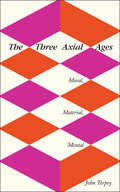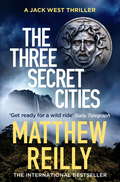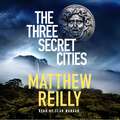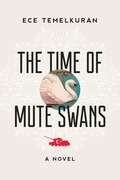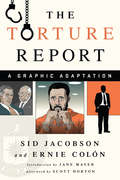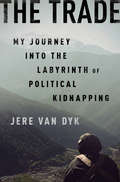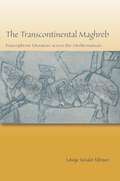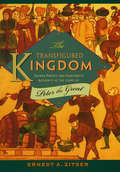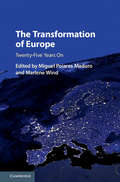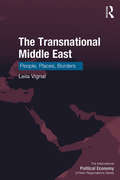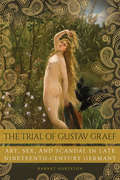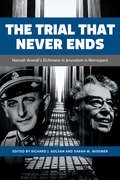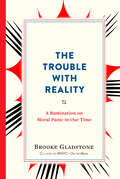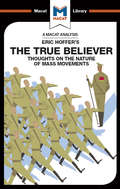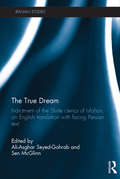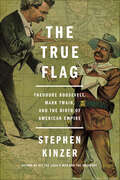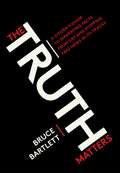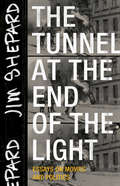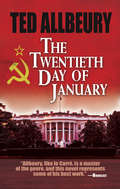- Table View
- List View
The Three Axial Ages: Moral, Material, Mental
by John TorpeyHow should we think about the “shape” of human history since the birth of cities, and where are we headed? Sociologist and historian John Torpey proposes that the “Axial Age” of the first millennium BCE, when some of the world’s major religious and intellectual developments first emerged, was only one of three such decisive periods that can be used to directly affect present social problems, from economic inequality to ecological destruction. Torpey’s argument advances the idea that there are in fact three “Axial Ages,” instead of one original Axial Age and several subsequent, smaller developments. Each of the three ages contributed decisively to how humanity lives, and the difficulties it faces. The earliest, or original, Axial Age was a moral one; the second was material, and revolved around the creation and use of physical objects; and the third is chiefly mental, and focused on the technological. While there are profound risks and challenges, Torpey shows how a worldview that combines the strengths of all three ages has the potential to usher in a period of exceptional human freedom and possibility.
The Three Lives of James Madison: Genius, Partisan, President
by Noah FeldmanA sweeping reexamination of the Founding Father who transformed the United States in each of his political “lives”—as a revolutionary thinker, as a partisan political strategist, and as a president“In order to understand America and its Constitution, it is necessary to understand James Madison.”—Walter Isaacson, #1 New York Times bestselling author of Leonardo da Vinci Over the course of his life, James Madison changed the United States three times: First, he designed the Constitution, led the struggle for its adoption and ratification, then drafted the Bill of Rights. As an older, cannier politician he co-founded the original Republican party, setting the course of American political partisanship. Finally, having pioneered a foreign policy based on economic sanctions, he took the United States into a high-risk conflict, becoming the first wartime president and, despite the odds, winning. In The Three Lives of James Madison, Noah Feldman offers an intriguing portrait of this elusive genius and the constitutional republic he created—and how both evolved to meet unforeseen challenges. Madison hoped to eradicate partisanship yet found himself giving voice to, and institutionalizing, the political divide. Madison’s lifelong loyalty to Thomas Jefferson led to an irrevocable break with George Washington, hero of the American Revolution. Madison closely collaborated with Alexander Hamilton on the Federalist papers—yet their different visions for the United States left them enemies. Alliances defined Madison, too. The vivacious Dolley Madison used her social and political talents to win her husband new supporters in Washington—and define the diplomatic customs of the capital’s society. Madison’s relationship with James Monroe, a mixture of friendship and rivalry, shaped his presidency and the outcome of the War of 1812. We may be more familiar with other Founding Fathers, but the United States today is in many ways Madisonian in nature. Madison predicted that foreign threats would justify the curtailment of civil liberties. He feared economic inequality and the power of financial markets over politics, believing that government by the people demanded resistance to wealth. Madison was the first Founding Father to recognize the importance of public opinion, and the first to understand that the media could function as a safeguard to liberty. The Three Lives of James Madison is an illuminating biography of the man whose creativity and tenacity gave us America’s distinctive form of government. His collaborations, struggles, and contradictions define the United States to this day.
The Three Secret Cities (Jack West Series)
by Matthew ReillyJoin one of the world's greatest adventure writers on a non-stop thrill-ride. * * * * *A SHADOW WORLD BEHIND THE REAL WORLDWhen Jack West Jr won the Great Games, he threw the four legendary kingdoms into turmoil.A WORLD WITH ITS OWN HISTORY, RULES AND PRISONSNow these dark forces are coming after Jack... in ruthless fashion.THAT IS REACHING INTO OUR WORLD ... EXPLOSIVELYWith the end of all things rapidly approaching, Jack must find the Three Secret Cities, three incredible lost cities of legend.It's an impossible task by any reckoning, but Jack must do it while he is being hunted... * * * * *JACK'S BACK. Catch up with him in the rest of the international bestselling series.SEVEN ANCIENT WONDERSTHE SIX SACRED STONESTHE FIVE GREATEST WARRIORSTHE FOUR LEGENDARY KINGDOMS
The Three Secret Cities: ‘The hottest action writer around’ Evening Telegraph (Jack West Series)
by Matthew ReillyJoin one of the world's greatest adventure writers on a non-stop thrill-ride. * * * * *A SHADOW WORLD BEHIND THE REAL WORLDWhen Jack West Jr won the Great Games, he threw the four legendary kingdoms into turmoil.A WORLD WITH ITS OWN HISTORY, RULES AND PRISONSNow these dark forces are coming after Jack... in ruthless fashion.THAT IS REACHING INTO OUR WORLD ... EXPLOSIVELYWith the end of all things rapidly approaching, Jack must find the Three Secret Cities, three incredible lost cities of legend.It's an impossible task by any reckoning, but Jack must do it while he is being hunted... * * * * *JACK'S BACK. Catch up with him in the rest of the international bestselling series.SEVEN ANCIENT WONDERSTHE SIX SACRED STONESTHE FIVE GREATEST WARRIORSTHE FOUR LEGENDARY KINGDOMS
The Time of Mute Swans: A Novel
by Ece TemelkuranAnkara, the capital city in the heart of Turkey at the crossroads of Europe and Asia, East and West, is a hotspot in the Cold War, torn between communism and conservatism, Western freedoms and traditional ways, with an army fearful of democracy and a government that employs thugs and torture to enforce law and order. In the summer of 1980, tensions are building. Homes of the poor are being burnt down. Armed revolutionaries on college campuses battle right-wings militias in the city's neighborhoods. The lines between good and bad, right and wrong, and beautiful and ugly are blurred by shed blood. Two children, one from a family living in misery and one well-off, form an alliance amid the turmoil. Through their senses, the cityscape unfolds its wonders, its rich smells and colors, as they try to make sense of the events swirling around them. And they hatch a plan. For the first time in generations, mute swans have migrated from Russia to the Black Sea and to a park at the center of Ankara. For the generals, they are an affirmation, and their wings must be broken so they can't fly away. But if the children can save one swan, won't they have saved the freedom of all?
The Torture Report: A Graphic Adaptation
by Jane Mayer Sid Jacobson Scott Horton"The more who learn the truth the better off the country will be, because there is no better safeguard against the revival of torture than a well-informed public." --Jane Mayer, from the IntroductionOn December 9, 2014, the Senate Select Committee on Intelligence released a report that strongly condemned the CIA for its secret and brutal use of torture in the treatment of prisoners captured in the "war on terror" during the George W. Bush administration. This deeply researched and fully documented investigation caused monumental controversy, interest, and concern, and starkly highlighted both how ineffective the program was as well as the lengths to which the CIA had gone to conceal it.In The Torture Report, Sid Jacobson and Ernie Colón use their celebrated graphic-storytelling abilities to make the damning torture report accessible, finally allowing Americans to lift the veil and fully understand the crimes committed by the CIA.
The Trade: My Journey into the Labyrinth of Political Kidnapping
by Jere Van Dykn 2014, Jere Van Dyk traveled to Afghanistan to try to discover the motives behind a kidnapping that had occurred six years earlier--his own. He was haunted by questions about why he was taken and why he was released, and troubled by the refusal of his friends, employer, and government employees to offer him a full account of what they knew. An experienced investigative reporter, he began a quest to interrogate the accuracy of everything he was told, including from the people he trusted most.In pursuing his kidnappers, and the stories of the intermediaries and money men, Van Dyk uncovered not just the story of his own abduction but the operation of what he calls the Trade: the business of kidnapping. Operating according to its own shadowy rules, the Trade has become a murky form of negotiation between criminal groups, corporations, families, and governments who have no formal lines of communication.Van Dyk's journey took him from up near the Tribal Areas of Pakistan, to the tea shops of Kabul, to the Obama White House, and revealed evidence of lucrative transactions and rival bandit groups working under the direction of intelligence services. In its course, he met the families of many Americans who were or are still kidnapped, bargaining chips at the mercy of violent and pitiless extremists who thrive in the world's most lawless spaces.
The Transcontinental Maghreb: Francophone Literature across the Mediterranean
by Edwige Tamalet TalbayevThe writer Gabriel Audisio once called the Mediterranean a “liquid continent.” Taking up the challenge issued by Audisio’s phrase, Edwige Tamalet Talbayev insists that we understand the region on both sides of the Mediterranean through a “transcontinental” heuristic. Rather than merely read the Maghreb in the context of its European colonizers from across the Mediterranean, Talbayev compellingly argues for a transmaritime deployment of the Maghreb across the multiple Mediterranean sites to which it has been materially and culturally bound for millennia.The Transcontinental Maghreb reveals these Mediterranean imaginaries to intersect with Maghrebi claims to an inclusive, democratic national ideal yet to be realized. Through a sustained reflection on allegory and critical melancholia, the book shows how the Mediterranean decenters postcolonial nation-building projects and mediates the nomadic subject’s reinsertion into a national collective respectful of heterogeneity. In engaging the space of the sea, the hybridity it produces, and the way it has shaped such historical dynamics as globalization, imperialism, decolonization, and nationalism, the book rethinks the very nature of postcolonial histories and identities along its shores.
The Transfigured Kingdom: Sacred Parody and Charismatic Authority at the Court of Peter the Great (Studies of the Harriman Institute)
by Ernest A. ZitserIn this richly comparative analysis of late Muscovite and early Imperial court culture, Ernest A. Zitser provides a corrective to the secular bias of the scholarly literature about the reforms of Peter the Great. Zitser demonstrates that the tsar's supposedly "secularizing" reforms rested on a fundamentally religious conception of his personal political mission. In particular, Zitser shows that the carnivalesque (and often obscene) activities of the so-called Most Comical All-Drunken Council served as a type of Baroque political sacrament—a monarchical rite of power that elevated the tsar's person above normal men, guaranteed his prerogative over church affairs, and bound the participants into a community of believers in his God-given authority ("charisma"). The author suggests that by implicating Peter's "royal priesthood" in taboo-breaking, libertine ceremonies, the organizers of such "sacred parodies" inducted select members of the Russian political elite into a new system of distinctions between nobility and baseness, sacrality and profanity, tradition and modernity.Tracing the ways in which the tsar and his courtiers appropriated aspects of Muscovite and European traditions to suit their needs and aspirations, The Transfigured Kingdom offers one of the first discussions of the gendered nature of political power at the court of Russia's self-proclaimed "Father of the Fatherland" and reveals the role of symbolism, myth, and ritual in shaping political order in early modern Europe.
The Transformation of Europe: Twenty-Five Years On
by Miguel Maduro Marlene WindJoseph Weiler's The Transformation of Europe is one of the most influential works in the history of European studies. Twenty-five years after its original publication, this new collection of essays pays tribute to Weiler's legacy by discussing some of the most pressing issues in contemporary European Union law, policy and constitutionalism. The book does not intend to be a simple expression of intellectual esteem for Weiler's seminal work; instead, the collection honours it by critically engaging with some of its assumptions and theses. Overall, it shows how a study of 1991 can still be fundamental to the present and future of the EU, including the challenges of Brexit and Eurozone crises.
The Transnational Middle East: People, Places, Borders (New Regionalisms Series)
by Leïla VignalThe Middle East has been undergoing new crises since the powerful socio-political uprisings known as the Arab Spring took place in several countries in 2011. Some countries are experiencing a long-term collapse of their political and social structures out of internal conflicts and external interventions. The Transnational Middle East posits that, in the Middle East, the development of regional dynamics, of processes and circulations of all kinds, can be documented. In this regard, the approaches it develops — ‘bottom-up’ regionalisation, ‘globalisation from below’ — allow for a better understanding of the ways in which the Middle East is part of global transformations. The book analyses how, through their practices, Middle East societies elaborate a regional space which is not institutionalised. Based on fieldwork in the Middle East, the book provides venues for further theoretical elaboration on globalisation and contemporary societies, as well as on processes of regionalisation. It draws on the emergence of genuine regional spaces of culture, art, economic activity, human circulation — which supplement and do not contradict other infra-national, national, or global social processes. As in other areas of the world, these transformations are to a large extent the mode of the Middle East’s insertion into globalisation. In this respect, they go against standard narratives of the supposed ‘exceptionalism’ of the region. This book will be a great contribution to comparative politics, Middle Eastern studies, globalisation and international relations.
The Trial of Adolf Hitler: The Beer Hall Putsch and the Rise of Nazi Germany
by David KingOn the evening of November 8, 1923, the thirty-four-year-old Adolf Hitler stormed into a beer hall in Munich, fired his pistol in the air, and proclaimed a revolution. Seventeen hours later, all that remained of his bold move was a trail of destruction. Hitler was on the run from the police. His career seemed to be over. The Trial of Adolf Hitler tells the true story of the monumental criminal proceeding that followed when Hitler and nine other suspects were charged with high treason. Reporters from as far away as Argentina and Australia flocked to Munich for the sensational four-week spectacle. By its end, Hitler would transform the fiasco of the beer hall putsch into a stunning victory for the fledgling Nazi Party. It was this trial that thrust Hitler into the limelight, provided him with an unprecedented stage for his demagoguery, and set him on his improbable path to power. Based on trial transcripts, police files, and many other new sources, including some five hundred documents recently discovered from the Landsberg Prison record office, The Trial of Adolf Hitler is a gripping true story of crime and punishment--and a haunting failure of justice with catastrophic consequences.
The Trial of Gustav Graef: Art, Sex, and Scandal in Late Nineteenth-Century Germany
by Barnet HartstonAlthough largely forgotten now, the 1885 trial of German artist Gustav Graef was a seminal event for those who observed it. Graef, a celebrated sixty-four-year-old portraitist, was accused of perjury and sexual impropriety with underage models. On trial alongside him was one of his former models, the twenty-one-year-old Bertha Rother, who quickly became a central figure in the affair. As the case was being heard, images of Rother, including photographic reproductions of Graef's nude paintings of her, began to flood the art shops and bookstores of Berlin and spread across Europe. Spurred by this trade in images and by sensational coverage in the press, this former prostitute was transformed into an international sex symbol and a target of both public lust and scorn. Passionate discussions of the case echoed in the press for months, and the episode lasted in public memory for far longer. The Graef trial, however, was much more than a salacious story that served as public entertainment. The case inspired fierce political debates long after a verdict was delivered, including disputes about obscenity laws, the moral degeneracy of modern art and artists, the alleged pernicious effects of Jewish influence, legal restrictions on prostitution, the causes of urban criminality, the impact of sensationalized press coverage, and the requirements of bourgeois masculine honor. Above all, the case unleashed withering public criticism of a criminal justice system that many Germans agreed had become entirely dysfunctional. The story of the Graef trial offers a unique perspective on a German Empire that was at the height of its power, yet riven with deep political, social, and cultural divisions. This compelling study will appeal to historians and students of modern German and European history, as well as those interested in obscenity law and class and gender relations in nineteenth-century Europe.
The Trial of the U2: Exclusive Authorized Account of the Court Proceedings of the Case of Francis Gary Powers
by Harold J. Berman Francis Gary PowersFirst published in 1960, this is the only authorized account of the trial of Francis Gary Powers, the U-2 pilot shot down by the Soviet Union on May 1, 1960. The court proceedings were held before the Military Division of the Supreme Court of the U.S.S.R. in Moscow, Russia and commenced on August 17, 1960 and concluded on August 19, 1960.Includes introductory comments written by internationally renowned authority on Soviet law, Professor Harold J. Berman, and richly illustrated throughout with exclusive courtroom photos.An exclusive ringside seat at one of the most dramatic trials in modern times!
The TrialThat Never Ends: Hannah Arendt's 'Eichmann in Jerusalelm' in Retrospect
by Richard J. Golsan Sarah MisemerThe fiftieth anniversary of the Adolf Eichmann trial may have come and gone but in many countries around the world there is a renewed focus on the trial, Eichmann himself, and the nature of his crimes. This increased attention also stimulates scrutiny of Hannah Arendt’s influential and controversial work, Eichmann in Jerusalem. The contributors gathered together by Richard J. Golsan and Sarah M. Misemer in The Trial That Never Ends assess the contested legacy of Hannah Arendt’s famous book and the issues she raised: the "banality of evil", the possibility of justice in the aftermath of monstrous crimes, the right of Israel to kidnap and judge Eichmann, and the agency and role of victims. The contributors also interrogate Arendt’s own ambivalent attitudes towards race and critically interpret the nature of the crimes Eichmann committed in light of newly discovered Nazi documents. The Trial That Never Ends responds to new scholarship by Deborah Lipstadt, Bettina Stangneth, and Shoshana Felman and offers rich new ground for historical, legal, philosophical, and psychological speculation.
The Trouble with Reality: A Rumination on Moral Panic in Our Time
by Brooke GladstoneEvery week on the public radio show On the Media, the award-winning journalist Brooke Gladstone analyzes the media and how it shapes our perceptions of the world. Now, from her front-row perch on the day’s events, Gladstone brings her genius for making insightful, unexpected connections to help us understand what she calls—and what so many of us can acknowledge having—“trouble with reality.” Reality, as she shows us, was never what we thought it was—there is always a bubble, people are always subjective and prey to stereotypes. And that makes reality actually more vulnerable than we ever thought. Enter Donald J. Trump and his team of advisors. For them, as she writes, lying is the point. The more blatant the lie, the easier it is to hijack reality and assert power over the truth. Drawing on writers as diverse as Hannah Arendt, Walter Lippmann, Philip K. Dick, and Jonathan Swift, she dissects this strategy, straight out of the authoritarian playbook, and shows how the Trump team mastered it, down to the five types of tweets that Trump uses to distort our notions of what’s real and what’s not. And she offers hope. There is meaningful action, a time-tested treatment for moral panic. And there is also the inevitable reckoning. History tells us we can count on it. Brief and bracing, The Trouble with Reality shows exactly why so many of us didn’t see it coming, and how we can recover both our belief in reality—and our sanity.
The True Believer: Thoughts on the Nature of Mass Movements
by Jonah S. RubinEric Hoffer’s The True Believer: Thoughts on the Nature of Mass Movements is one of the most widely read works of social psychology written in the 20th-century. It exemplifies the powers of creative thinking and critical analysis at their best, providing an insight into two crucial elements of critical thinking. Hoffer is likely to go down in history as one of America’s great creative thinkers – a writer not bound by standard frameworks of thinking or academic conventions, willing to beat his own path in framing the best possible answers to the questions he investigated. An impoverished, largely unschooled manual laborer who had survived the worst effects of the Great Depression in the United States, Hoffer was a passionate autodidact whose philosophical and psychological education came from omnivorous reading. Working without the help of any mentors, he forged the fearsomely creative and individual approach to problems demonstrated in The True Believer. The book, which earned him his reputation, examines the different phenomena of fanaticism – religious or political – and applies Hoffer’s analytical skills to reveal that, deep down, all ‘true believers’ display the same needs and tendencies, whatever their final choice of belief. Incisive and persuasive, it remains a classic.
The True Dream: Indictment of the Shiite clerics of Isfahan, an English translation with facing Persian text (Iranian Studies)
by Ali-Asghar Seyed-Gohrab Sen McGlinnThe True Dream is a Persian satirical drama set in Isfahan in the lead up to Iran’s Constitutional Revolution of 1905-11. Although its three authors hail from the clerical class, they criticize the arrogance, corruption and secularity of the Iranian ruling dynasty and clergy, taking Isfahan as their example. The work blends fact and fiction by summoning the prominent men of the city to account for themselves on the Day of Judgement. God speaks offstage, delivering withering judgements of their behaviour. The dream of the authors is a vision of an Iran governed by law, where justice prevails and the clergy are honestly religious. This book has the Persian and English translation on facing pages. The introduction presents brief biographies of the authors – who wrote anonymously, but were all executed. One of the authors was the father of Mohammad-Ali Jamâlzâdeh, a pioneer of modern Persian fiction, and The True Dream was one of the first dramas, in European style, to be written in Persian. The book shows that today’s struggle for a modern society began more than a century ago, and then and now pivots on the role of the Islamic clerics (the ulama). Using colloquial language, this first English translation of a significant and humorous Persian satirical drama will prove an accessible and valuable resource for students of Persian. By marking a significant point in the influence of Western political philosophy and Western drama on the Persian intellectual classes, this book will also appeal to students and scholars of Middle Eastern History and Political Science.
The True Flag: Theodore Roosevelt, Mark Twain, And The Birth Of American Empire
by Stephen KinzerHow should the United States act in the world? Americans cannot decide. Sometimes we burn with righteous anger, launching foreign wars and deposing governments. Then we retreat—until the cycle begins again. <p><p> No matter how often we debate this question, none of what we say is original. Every argument is a pale shadow of the first and greatest debate, which erupted more than a century ago. Its themes resurface every time Americans argue whether to intervene in a foreign country. <p> Revealing a piece of forgotten history, Stephen Kinzer transports us to the dawn of the twentieth century, when the United States first found itself with the chance to dominate faraway lands. That prospect thrilled some Americans. It horrified others. Their debate gripped the nation. <p> The country’s best-known political and intellectual leaders took sides. Theodore Roosevelt, Henry Cabot Lodge, and William Randolph Hearst pushed for imperial expansion; Mark Twain, Booker T. Washington, and Andrew Carnegie preached restraint. Only once before—in the period when the United States was founded—have so many brilliant Americans so eloquently debated a question so fraught with meaning for all humanity. <p> All Americans, regardless of political perspective, can take inspiration from the titans who faced off in this epic confrontation. Their words are amazingly current. Every argument over America’s role in the world grows from this one. It all starts here.
The True Flag: Theodore Roosevelt, Mark Twain, and the Birth of American Empire
by Stephen KinzerThe bestselling author of Overthrow and The Brothers brings to life the forgotten political debate that set America’s interventionist course in the world for the twentieth century and beyond.How should the United States act in the world? Americans cannot decide. Sometimes we burn with righteous anger, launching foreign wars and deposing governments. Then we retreat—until the cycle begins again. No matter how often we debate this question, none of what we say is original. Every argument is a pale shadow of the first and greatest debate, which erupted more than a century ago. Its themes resurface every time Americans argue whether to intervene in a foreign country. Revealing a piece of forgotten history, Stephen Kinzer transports us to the dawn of the twentieth century, when the United States first found itself with the chance to dominate faraway lands. That prospect thrilled some Americans. It horrified others. Their debate gripped the nation. The country’s best-known political and intellectual leaders took sides. Theodore Roosevelt, Henry Cabot Lodge, and William Randolph Hearst pushed for imperial expansion; Mark Twain, Booker T. Washington, and Andrew Carnegie preached restraint. Only once before—in the period when the United States was founded—have so many brilliant Americans so eloquently debated a question so fraught with meaning for all humanity. All Americans, regardless of political perspective, can take inspiration from the titans who faced off in this epic confrontation. Their words are amazingly current. Every argument over America’s role in the world grows from this one. It all starts here.
The Trump Prophecies: The Astonishing True Story of the Man Who Saw Tomorrow... and What He Says is Coming Next
by Mark Taylor Mary ColbertIn November of 2016, the world witnessed the impossible. Nearly every household in America was tuned in to the election feeds, and every update pointed to a loss for the Republican Party. But when the map of the states flipped red in the final hour, there were a select few who weren't surprised. They had always known Trump was going to win. He was chosen "for such a time as this. " The prophecy had said so. This prophet, this reserved man of God, was retired firefighter Mark Taylor. The word given by the Holy Spirit was delivered on April 28, 2011 in the middle of the most debilitating sickness a man could ever experience. When the prophecy later fell into the hands of New York Times bestsellers Don and Mary Colbert, God used this new team of passionate individuals to lead the nation into a fervent prayer chain that would accomplish one of the most incredible miracles our country has ever seen. But Trump's victory was only the beginning... What is coming next for the most powerful nation on earth today? Mark Taylor has more to say. In THE TRUMP PROPHECIES readers will discover: * How the Lord can and will use anyone--regardless of education, background, or health--to communicate His message to the Church of Christ * What led to the miracle of the 2016 election, the role of "we the people" for the will of God in the future, and what the Body of Christ needs to do to keep His blessing on our nation * How the enemy has utilized techniques of distraction to keep the Body's focus off of God and onto internal, demoralizing disputes--and how this can be overcome * Astounding, world-altering changes in our US government Mark sees on the horizon * The positive message of hope and encouragement that points to fresh methods of spreading the Gospel to the lost
The Trump Survival Guide: Everything You Need to Know about Living through What You Hoped Would Never Happen
by Gene StoneNational BestsellerDon’t despair. Don’t retreat. Fight back.A call-to-action for Democrats, moderate Republicans, and other anti-Trump dissenters, detailing the history of social and political policies, how Obama treated them, how Trump has the power to undermine them, and what people can do to fight back.The stunning election of Donald J. Trump rocked an already divided America and left scores of citizens, including the nearly sixty-five million voters who supported Hillary Clinton, feeling bereft and powerless. Now, Gene Stone, author of The Bush Survival Bible, offers invaluable guidance and concrete solutions the resistance can use to make a difference in this serious call-to-arms—showing them how to move from anger and despair to activism against the Trump presidency and its potentially lasting effects on our democracy. Before we can successfully engage, we need to be clear about the battles we face. Stone outlines political and social concepts—including such issues as Civil Rights, Women’s Rights, the Environment, Obamacare, International relations, and LGBTQ Rights—providing a brief history of each, a refresher on Obama's policies over his eight years in office, and an analysis of how Trump’s administration is threatening them. But lest we feel overwhelmed by the scale of the threat and settle for aimless outrage, Stone then provides an invaluable guide for fighting back—referring to organizations, people, sites, and countless other resources that are working tirelessly to restore the power of the people, safeguard our democracy, and ensure that none of us are left behind in our quest for relentless and equitable progress.While marches and social media are important forms of protest, concrete actions that achieve real and measurable change are a vital part of the fight. Positive and reinforcing, The Trump Survival Guide presents the essential information we need to effectively make our voices heard and our power felt, during the Trump presidency and beyond.
The Truth Matters: A Citizen's Guide to Separating Facts from Lies and Stopping Fake News in Its Tracks
by Bruce BartlettDistinguish fake news from reliable journalism with this clear and concise handbook by New York Times best-selling author Bruce Bartlett.Today’s media and political landscapes are littered with untrustworthy sources and the dangerous concept of “fake news.” This accessible guide helps you fight this deeply troubling trend and ensure that truth is not a permanent casualty. Written by Capitol Hill veteran and author Bruce Bartlett, The Truth Matters presents actionable tips and tricks for reading critically, judging sources, using fact-checking sites, avoiding confirmation bias, identifying trustworthy experts, and more.
The Tunnel at the End of the Light: Essays On Movies And Politics
by Jim Shepard"Shepard may be the best lesser-known film critic." —The New York Times Book Review The first book of nonfiction from one of our great fiction writers. Given that most Americans proudly consider themselves non-political, where do our notions of collective responsibility come from? Which self-deceptions, when considering ourselves as actors on the world stage, do we cling to most tenaciously? Why do we so stubbornly believe, for example, that our country always means well when intervening abroad? The Tunnel at the End of the Light argues that some of our most persistent and destructive assumptions, in that regard, might come from the movies. In these ten essays Jim Shepard weaves close readings of film with cultural criticism to explore the ways in which movies work so ubiquitously to reflect how Americans think and act. Whether assessing the “high-spirited glee of American ruthlessness” captured in GoodFellas, or finding in Lawrence of Arabia a “portrait of the lunatic serenity of our leaders’ conviction in the face of all evidence and their own lack of knowledge,” he explores how we enter into conversations with specific genres and films—Chinatown, The Third Man, and Badlands among others—in order to construct and refine our most cherished illusions about ourselves.
The Twentieth Day of January: The Inauguration Day Thriller
by Ted Allbeury"Allbeury, like le Carré, is a master of the genre, and this novel represents some of his best work." — Booklist "A flawlessly structured plot." — Publishers Weekly"Uncannily predicted the rise of Donald Trump." — Slate.comIt's 1980 and the Cold War continues to rage. Seemingly out of nowhere, wealthy businessman Logan Powell has become President-elect and is only weeks away from assuming the most powerful position in the world on the twentieth day of January. Across the Atlantic, veteran British intelligence agent James MacKay uncovers shocking evidence that suggests something might be terribly wrong with the election. With the help of a reluctant CIA, MacKay sets out on a dangerous and daring mission to discover if the unthinkable has occurred: is President-elect Powell actually a puppet of the Soviet Union? Written by the bestselling author of The Crossing and Pay Any Price, this remarkably plausible thriller offers a heady mix of political intrigue and intense suspense — with the very future of America and the free world hanging in the balance. "Allbeury's novels have won a reputation not only for verisimilitude but for crisp, economical narration and high drama … there's no better craftsman." — Chicago Sun-Times"A most knowledgeable chronicler of espionage." — The New York Times Book Review "When I say Ted Allbeury knows where the bodies are buried I mean it literally. Truly a classic writer of espionage fiction." — Len Deighton, author of The Ipcress File
